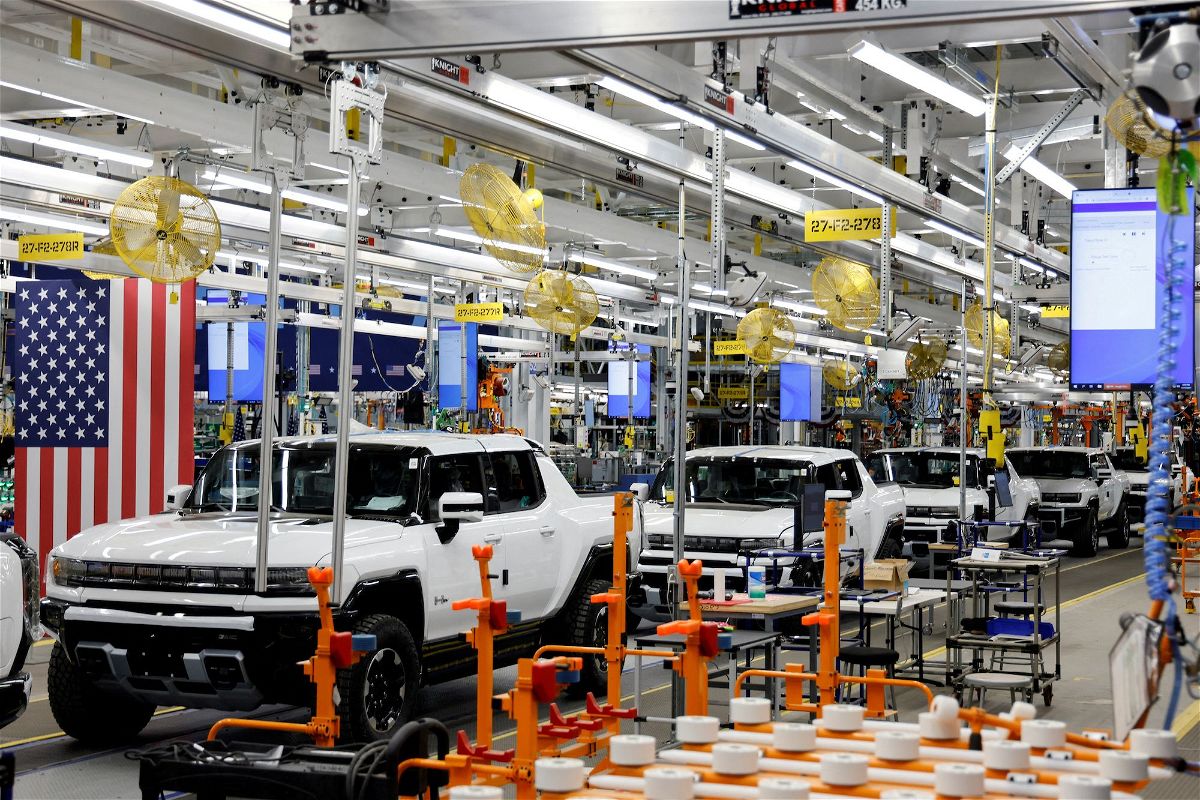UAW members could approve possible strikes at GM, Ford and Stellantis

Originally Published: 25 AUG 23 07:16 ET By Chris Isidore, CNN
New York (CNN) — The United Auto Workers union is preparing for possible strikes at the nation’s three unionized automakers next month, as the union tries to win back many of the concessions it lost more than 15 years ago and protect members during the transition to electric vehicles in the years ahead.
Strike votes concluded Thursday among about 145,000 UAW members at General Motors, Ford and Stellantis, the company that sells vehicles under the Ram, Dodge, Jeep and Chrysler names. The union is due to report results at around 11 am ET Friday. Strike authorization votes generally pass.
However,the vote does not mean there will be a strike at any of the three automakers. It just empowers union leadership to call a strike if they can’t reach a deal with management before a contract expiration. It is a common negotiating tactic in advance of a strike deadline. Even with a recent increase in strikes across the US, most labor negotiations conclude with an agreement and not a strike.
The contracts with the three automakers all expire September 14.
Union President Shawn Fain and the UAW are talking up an ambitious set of goals in this year’s negotiations. The UAW wants to get back contract provisions it gave up in the 2007 negotiations, as the companies were all reporting massive losses and GM and Chrysler were less than two years away from bankruptcies and federal bailouts.
Among those earlier concessions was the end of a traditional pension plan. New hires since 2007 were given only a 401(k) plan, not a retirement plan that paid them a set amount of money every month they lived after retiring. New hires also lost retiree health care coverage. And many new hires are paid at a lower wage scale than veteran employees, at least initially.
The union also wants a return of cost-of-living adjustments to protect workers from inflation.
In addition, Fain has voiced support for current pay to increase about 40% over the life of the contract, which he said would be comparable to the raises the automakers’ chief executives have received in recent years. He has voiced support for a four-day, 32-hour work week without a drop in pay.
He also wants protections against job losses and plant closings, especially with automakers announcing plans to shift their product lineups from traditional gasoline powered cars to electric vehicles.
EVs can need about one-third fewerlabor hours to assemblethangas-powered cars require due to having fewer parts, since complex engines and transmissions aren’t needed in an EV. Many of the jobs building EVs will be at plants that are recently opened or are under construction to build the EVbatteries.
But almost all of those plants are owned by joint ventures with battery makers such as LG and Samsung. The workers at those plants are not going to be employees of GM, Ford or Stellantis. And the plants either are paying or are expected to pay far less than UAW members make at the assembly, engine and transmission plants covered by these three contracts.
The UAW is demanding that the automakers agree to what it is calling a “just transition” to EVs, having jobs at its battery plants be comparable to UAW wages at the automakers. And Thursday, theunion reached a tentative agreement to significantly raise the wages of workers at the battery plant in Warren, Ohio, operated by the joint venture GM and LG.
The-CNN-Wire
™ & © 2023 Cable News Network, Inc., a Warner Bros. Discovery Company. All rights reserved.
